Search engine optimization is always changing. Just when you think you have it figured out, Google updates its algorithm, and the rules shift again. Staying ahead of these changes is key to keeping your website visible and attracting new customers. As we move through 2025, several powerful trends are emerging that will define success in 2026.
This post will guide you through the most important SEO trends of 2025. We will break down what they are, why they matter, and how you can use them to build a stronger strategy for the year ahead. You will learn about the growing role of AI, the importance of helpful content, and new ways people are searching for information online.
The Top SEO Trends for 2025
Let’s explore the key developments that will influence your digital marketing efforts. Understanding these trends will help you prepare for a successful 2026.
1. AI is Reshaping the Search Landscape
Artificial intelligence is no longer a futuristic concept; it is a central part of SEO today. Google’s Search Generative Experience, or SGE, provides AI generated answers directly at the top of the search results page. This means users often get their questions answered without ever clicking on a website.
For your business, this changes everything. You can no longer rely solely on ranking number one. Your goal now is to be featured within these AI summaries.
How to Adapt:
- Answer Questions Directly: Structure your content to provide clear, concise answers to common questions. Use headings that pose a question, then immediately provide the answer. For example, a bakery might have a section titled, “What is the best flour for sourdough bread?” followed by a detailed explanation.
- Focus on Factual Accuracy: AI models pull information from trusted sources. Ensure your website content is well researched, accurate, and up to date. This builds credibility with both users and search engines.
- Build Your Brand Authority: When your brand is mentioned as a reliable source across the web, AI is more likely to reference you. Encourage customer reviews, seek features in industry publications, and become a known expert in your field.
2. Helpful Content is More Important Than Ever
Google has been very clear about its priorities. It wants to reward content created for people, not just for search engine algorithms. The Helpful Content System is designed to promote content that demonstrates firsthand experience and deep knowledge. Thin, generic articles created only for ranking purposes are being pushed down.
Think about a local coffee shop’s website. A helpful blog post would be “Our Guide to a Perfect Pour Over,” written by the head barista with personal tips and photos. An unhelpful post would be a generic article titled “What is Coffee” that offers no unique value.
How to Adapt:
- Show, Don’t Just Tell: Use original images and videos to support your content. If you are a landscaping company, show before and after photos of your work. If you sell a product, create a video demonstrating how to use it.
- Write with Experience: Create content that reflects your unique expertise. Share case studies, personal stories, and lessons you have learned in your industry. This E-E-A-T (Experience, Expertise, Authoritativeness, and Trustworthiness) is a cornerstone of modern SEO. You can learn more about it directly from Google’s search documentation.
- Update Your Old Content: Review your existing blog posts and pages. Can you add more specific examples, update statistics, or include new insights to make them more helpful? This is often easier than starting from scratch.
3. Visual and Voice Search are Growing
The way people search is expanding beyond the traditional text query. More users are turning to Google Lens to search with their cameras or using voice assistants like Alexa and Google Assistant to ask questions aloud. This shift requires a new approach to optimization.
Imagine a tourist walking through a new city. They might use Google Lens to identify a historic building or ask their phone, “Where is the nearest Italian restaurant?” Your business needs to be visible in these new search formats.
How to Adapt:
- Optimize Your Images: Use high quality, original images with descriptive file names and alt text. For an online clothing store, an image file should be named
blue-linen-button-down-shirt.jpginstead ofIMG_1234.jpg. Its alt text could be “Model wearing a blue linen button down shirt with white pants.” - Embrace Conversational Language: For voice search, people use natural, conversational phrases. Structure your content around full questions and answers. Our local SEO services page, for instance, could be optimized for questions like, “How can I get my business on Google Maps?”
- Claim Your Business Profiles: Ensure your Google Business Profile and other local listings are complete and accurate. This is critical for voice searches seeking local information.
4. Topic Authority is Replacing Keyword Focus
In the past, SEO was often about targeting one or two keywords per page. Today, search engines are smarter. They want to see that you are an authority on a whole topic, not just a single keyword. This means creating comprehensive content clusters that cover a subject from every angle.
For a financial advisor, instead of just writing one article on “retirement savings,” they should create a central pillar page about retirement planning. This page would link out to smaller, more detailed articles on topics like “401k vs. Roth IRA,” “How to Save for Retirement in Your 20s,” and “Managing Investments After Retirement.” This structure proves deep expertise.
How to Adapt:
- Think in Topics, Not Keywords: Brainstorm all the questions your audience has about a core service you provide. Use a tool like AnswerThePublic to find related queries.
- Build Content Hubs: Create a main pillar page that provides a broad overview of a topic. Then, write several cluster posts that dive into specific subtopics, linking them all back to the main pillar page.
- Use Internal Linking: Connect your related articles to one another. This helps search engines understand the relationship between your content and keeps users on your site longer.
Your SEO Plan for 2026
SEO is not a one time task; it is an ongoing process of learning and adapting. The trends of 2025 show a clear path forward: focus on providing real value to your audience. Create helpful, expert driven content that answers their questions, build your brand’s authority, and optimize for the new ways people are searching.
By putting people at the center of your strategy, you will not only please Google, but you will also build a loyal audience that trusts your brand.
Ready to build an SEO strategy that gets results? Contact our team at MoDuet today for a free consultation. We can help you navigate these trends and prepare your business for success in 2026 and beyond.
We Want To Talk To You About Your Marketing Goals.
Let’s Supercharge Your Online Growth!












